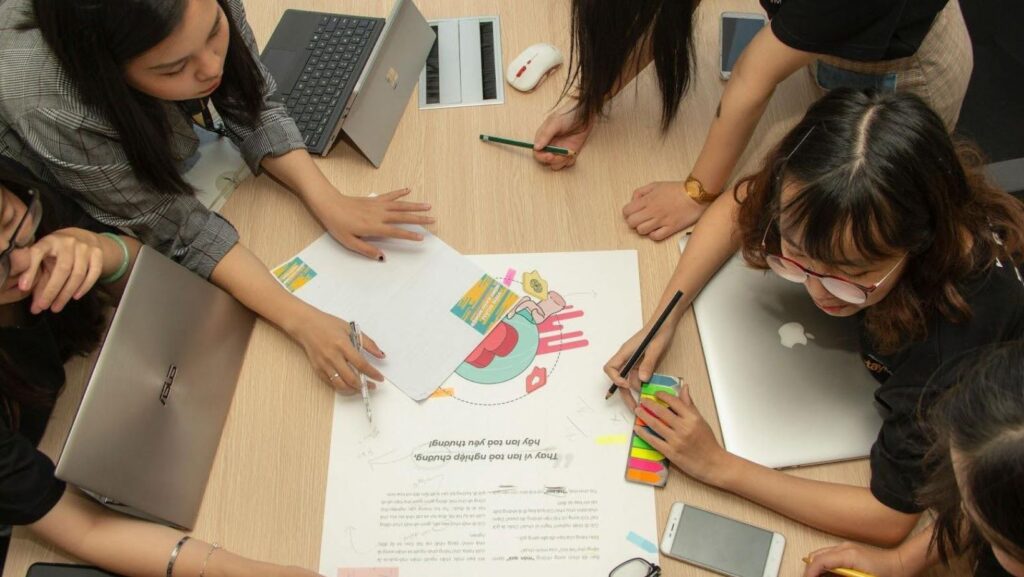Leadership is not just for CEOs or public figures. It is a skill that you can develop and use right now; school offers countless everyday opportunities to step into leadership, whether through leading a project, speaking up in class, or helping organize an event.
In a recent discussion with Nova Scholar, we explored how leadership growth begins long before professional roles. Opportunities such as the Bank of America Student Leaders Program, among others, help give students a strong head start. By combining classroom experiences with structured programs, students can prepare for college, careers, and community impact.
The Classroom as a Training Ground for Leadership
School is more than just a place to learn math or science; the classroom is a space where students can practice leadership every day in small but meaningful ways.
For example, working as part of a team on a class project teaches you how to
- Divide tasks fairly and share roles
- Respect different opinions
- Present ideas confidently to your classmates
Even simple moments, like leading a study group or speaking in front of the class count as leadership practice.

You might not even realize it at the time, but each of these experiences helps you develop the confidence and skills you’ll need for bigger challenges in the future.
Extracurriculars and Clubs: Labs for Real Leadership
Learning how to lead does not stop when the school bell rings. Extracurricular activities like sports, clubs, and student council are great spaces for practicing responsibility and teamwork.
Sports and teamwork
Being on a sports team teaches you how to work with others toward a shared goal. You learn to support teammates during wins and losses. You might also take on extra responsibility by leading drills or serving as team captain.
Clubs and Student Council
Clubs and student councils offer concrete opportunities to lead. You might organize events, mentor new members, or take on roles such as president or secretary, which showcase different types of leadership that are easily recognized on your resume.
Research shared by National Inventors Hall of Fame showed that activities outside the classroom help students practice problem-solving, communication, and leadership in ways lessons alone cannot.
Community Service and Volunteering: Leadership Beyond School Walls
Leadership is not only about what happens in classrooms or clubs. Community service and volunteer programs give students a chance to apply their skills in real-life situations where their actions make a difference.
Learning responsibility and empathy
When students join service projects, they see how their actions can make a real difference. These experiences teach important skills, such as:
- Taking responsibility for tasks that affect real people
- Understanding other people’s perspectives and showing empathy
- Solving problems when things do not go as planned
Making an Impact Outside School
Organizing a donation drive, tutoring younger children, or joining a clean-up campaign teaches students that leadership is also about serving others. These experiences shape leaders who value teamwork, empathy, and responsibility.
Learning From Mentors and Peers
Strong leaders are not built alone. Teachers, mentors, and classmates all help students grow as leaders.
Guidance from Mentors
Mentors, such as teachers, coaches, or older students, can:
- Give advice when facing challenges
- Show positive leadership through their actions
- Encourage students to try new things and step out of their comfort zone
Watching mentors helps students understand what good leadership looks like in real life.
Peer Influence and Teamwork
Friends and classmates also shape leadership. Working in groups teaches cooperation, empathy, and how to handle conflicts. Students who respect their peers and lead with fairness create a positive influence on others.
Practical Ways Students Can Build Leadership Skills Every Day
Leadership is not just about having big titles like class president or team captain. Students can practice it in small ways every day.
Simple Actions That Make a Difference
- Speak up in class: Share your ideas and encourage others to join the conversation.
- Help a classmate: Offer support when someone struggles with homework or projects.
- Stay organized: Manage your time and set a good example for others.
- Be reliable: Show up on time and follow through on promises.
Turning Practice Into Growth
These small actions may seem simple, but they help build habits that prepare students for bigger leadership roles in the future. The more you practice, the easier and more natural leading others becomes.
Digital Leadership: Leading in the Online World
In today’s world, leadership is not just about face-to-face interactions. Students can practice leadership through online platforms, digital projects, and social media in safe and responsible ways.
Leading Through Digital Projects
Creating a blog, podcast, or YouTube channel helps students learn planning, communication, and responsibility.

Managing a school website or social media account teaches teamwork and organization.
Collaboration and Communication Online
Working with classmates online helps students improve communication, problem-solving, and respect for different perspectives. These skills are important for leadership in school and in future careers.
Responsibility and Digital Citizenship
Students also learn to act ethically online. They practice protecting privacy and setting a positive example for others. Being a responsible digital leader builds trust and influence in their communities.
Conclusion: Take the First Step Toward Leadership
Leadership does not happen overnight. It grows through small actions, daily choices, and the chances students get to practice. Every experience, from the classroom to after-school activities or community projects, is a chance to learn how to guide, support, and inspire others.
Education is powerful because it lets students practice leadership in a safe space. Mistakes become lessons. Challenges help students grow stronger. Speaking up in class, volunteering in the community, or taking responsibility in a group helps students build skills that will last a lifetime.
Do not wait for the right moment to lead. Start today. Every student can make a difference and grow into the leader they are meant to be.
